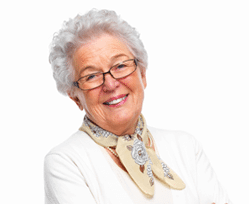When elderly veterans are not able to maintain the basics of self-care, it is considered elder self-neglect. Some of these basics include personal hygiene and grooming, cleanliness, keeping their living environment comfortable and safe, proper managing of money and paying bills, and maintaining family and social contacts.
When veterans are caught in the cycle of self-neglect, it makes them more vulnerable to health issues. It also puts them at risk for abuse by other people who may be thinking that this is someone who can’t make good decisions about their money or their belongings or themselves. It also makes it more difficult for the elder to protect herself from harm.
The trend of veteran elders neglecting themselves is quite common actually, and protective service agencies can verify that reports of self-neglect are common in all states. Do you think your veteran mother or father might be suffering from self-neglect?
What are some of the common signs that elder self-neglect is present?
- There is a lack of personal care
- Grooming is poor
- Clothes are dirty, ragged
- Skin, fingernails and hair are unclean
- Medication is refused
- Non-adherence to a medicine schedule
- Not willing to accept medical-related care
- Living conditions unsafe
- Not enough food in the home
- Home is unclean, cluttered
- Pests such as flies, beetles, rodents infesting home
- Disorientation or confusion
- Incoherent
- Unable to focus
- Can’t carry on a normal conversation
- Inability to answer basic questions about time, place, date
- Hoarding
- Unreasonable collection of animals
- Buildup of trash
- Avoiding getting rid of anything
- Dependence on drugs or alcohol
- Can’t manage finances
- Bills not paid
- Borrowing excess amounts of money on regular basis
- Gives away property without caring
- Gives away money
- Isolated
- Little to no contact with friends or family
- Little to no social support
- Lack of involvement in social activities
How to solve the issue of self-neglect
If you are concerned that your mom or dad is suffering from one or several of the items listed above, get them assessed by a professional to rule out Alzheimer’s disease, dementia, depression, or another illness. If self-neglect is the diagnosis, the doctor or health professional can give you some valuable guidance.
Your mom or dad could use the help of veterans home care. A caregiver coming in a few times a week or daily could give her just the boost she needs to get her life back on track and caring about her own well-being again. The caregiver can give her companionship and help her to find joy in life again.
For more information on the VA Aid and Attendance Pension Benefit that helps senior veterans pay for in-home care services, or if you have a general question about VA Home Care, please don’t hesitate to call Veterans Home Care at 888-314-6075















